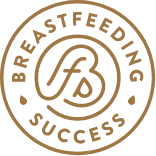By Ali Weatherford
I took a wonderful workshop on the topic of The Sitting Month recently with Jane Yu, L. Ac. She is an acupuncturist and doctor of Chinese medicine specializing in pregnancy, birth, and postpartum. I teach birth classes, have had a couple of babies of my own, and I even teach a class all about postpartum recovery. I understand at a personal level how important and delicate the postpartum period can be, and I try to give my birth class students useful information regarding their recovery.
Unfortunately, our current healthcare system is not well-equipped to properly support families in this recovery, which includes the big transition into parenthood too. We don’t get enough support for our physical healing, and almost none to support the emotional upheaval and social, mental, logistical changes that occur in a person’s life after bringing a baby into the family.
In many Asian countries, there is a more holistic approach to managing postpartum recovery. It is treated with a lot more reverence and special attention. The more I learn, the more I recognize that these ancient traditions should probably be upheld, even if they could use a little updating so that more people would be open to the treatment.
What is the Sitting Month?
The Sitting Month has different names in different cultures. What is common among traditions is that it’s a period of about 40 days, or six weeks. That is also similar in the United States.
Our final (and often first) follow up visit with the obstetrician is scheduled for about 6 weeks postpartum. It’s done that way because most people have healed well enough to be cleared for normal activity at that point.
The Sitting Month also recognizes a similar timeframe for healing. What’s very different is how those 6 weeks are managed. The traditional care during The Sitting Month requires a lot of special attention from people who are familiar with the special practices and foods, usually a mother, grandmother, and/or other family members. The new mother in recovery has very little to do besides eat, rest, and care for her baby.
When you look at the results, this kind of care makes sense. It makes it much more likely that they will recover quickly and completely. It also allows them to take the time needed to bond and transition more gently into parenthood.
Sitting Month care usually involves a community. Mothers, aunties, other family members, friends and neighbors may all pitch in to help out the new family. It’s less about the baby, and more about the new mother and the new family. It is recognized that the person who just went through 9 months of pregnancy and birthed a baby needs support and special attention.
I don’t think we do a good job of this in our culture. Instead it tends to be about three things:
- The baby
- Productivity
- The body bouncing back
Mother Care over Baby Enthusiasm
The baby DOES deserve care, but the focus should maybe be on helping the new mother more easily provide care to her baby instead of having other people come look at the baby and pass the baby around and give the baby gifts. Sitting Month traditions are mostly about mothering the new mother.
Healing over Productivity
Our definition of Productivity definitely takes a back seat with Sitting Month care. It’s important to recognize that healing is critical AND productive, and that means giving recovery full focus for a temporary amount of time. Being productive in the more modern and visible sense shouldn’t be happening yet. Healing first, then a person can be even more “productive” later.
Whole Self Recovery over Bouncing Back
The idea of “bouncing back” shouldn’t be all negative, but I do think that emphasis is usually placed on the wrong things. Losing weight, fitting into skinny jeans, being able to do vigorous exercise and activity are the main focus in our culture. Instead, in traditional Asian cultures, the focus is on nourishing the body so it can regain full function.
The body changed dramatically during pregnancy, and birth is an extremely physically demanding event too. The body lost a lot of fluid, shape, hormonal, soft tissue, and organ stability. It needs support to be able to recover from all of this, but when it’s done well, the weight loss and beauty and fitness will come back eventually. It’s a gradual process that starts with very simple and nourishing things.
Sitting Month Traditions
Something that most or even ALL Sitting Month traditions have in common is the focus is on three different priorities.
- Warmth
- Rest
- Relaxation
Avoid Cold
This might be handled differently in different cultures, but the basic idea is to stay warm. Warm helps the body heal and keeps the energy moving in that direction. The “rules” around this can be very strict and difficult to adhere to when done traditionally. For the sake of this article, I’m going to focus on the basics and some ways to get the benefits without going too far outside your comfort zone.
- Avoid drinking iced beverages and eating frozen foods
- Have lots of warm teas and soups
- Keep your thermostat a little higher than usual
- Stay out of drafts or direct airflow from the A/C vent
- Bathe less, and be sure to take only very warm baths and showers. Also make sure your room is warm especially while you dry off and dress. Blow dry your hair after a wash so you don’t get a chill from having wet hair.
- Eat warm foods in the literal sense. Well-cooked soups, broths, slow cooker meals served warm are great meals. The food should be well cooked and warm so it’s easier to digest. Your organs will be out of place for a little while after birth and digestion can sometimes be tricky. Until things are well healed, you can benefit from eating easily digestible foods. Some examples are bone broth, chicken and rice soup, and light risottos. It’s also best to avoid very rich, heavy, or filling foods. It’s also easier to maintain good digestion when you eat more small and light meals throughout the day.
- Also avoid energetically “cold” foods. In Asian traditions these might include raw foods, seafood, and warm weather type foods that people eat because they feel cool or refreshing.
Avoid Physical Stress
Getting plenty of rest is key to good recovery. Your body is healing many injuries caused by pregnancy and birth, even though you can’t see most of them. Muscles, ligaments, tendons, organs, hormones and even skin may be affected.
Resting can help those injuries heal well and completely. When healing is complete, you are ensuring a better future. When healing is incomplete, people might deal with issues down the line related to future pregnancies, issues with pain or incontinence, and even during menopause and perimenopause. The most important point is that you just rest comfortably most of the time. Your main concerns are rest and taking care of your baby. Some tips to help you avoid physical stress:
- If you have more than one floor in your home, try to have a “hangout spot” on each level so you can avoid going up and down stairs more than once per day. You might spend a few hours in your bed, then move to a couch or comfy chair in another room for another part of the day. If you have all of your necessities at a “station” near your hangout space, you’ll minimize the amount of moving around you need to do. You can walk and do some things for yourself, but stairs are considered heavier physical stress and should be minimized.
- Have helpers. Some people have many helpers, and others don’t. If you have anyone offering to help, take advantage of it! It’s great to have someone who might be able to stay with you for any amount of time, but even if it’s just having a friend drop by for a couple of hours a day, that can be helpful. You can organize your day and save some of the heavy lifting tasks for when you have a helper around.
- Baby showers are usually a time to get lots of baby gear, but consider asking for some things to help you in your postpartum recovery. Some ideas are massage, Bengkung belly binding services, acupuncture, hiring a postpartum doula, or hiring someone to prepare meals, do house cleaning, yard work, or anything else you need help with!
Avoid Emotional Stress
Your emotions will likely be all over the place for a while. It makes perfect sense. There is SO MUCH going on including some sleep loss and hormone swings. You should expect to have some ups and downs. It’s also important to recognize that postpartum moods can become a bigger problem. When you’re caring for yourself well, you lower your risks for postpartum mood disorders like postpartum depression and postpartum anxiety. Sitting Month care puts a lot of focus on your emotional health. Relaxation is important. Avoiding big swings is key. Some ideas for keeping you relaxed:
- Avoid too much reading, especially social media. There is a lot of evidence showing that engaging with social media too much can lead to emotional stress.
- Sleep whenever you can. Being sleep deprived magnifies negative emotions.
- Minimize visitors if that causes stress.
- Visitors should bring something or be helpful when they visit.
Although the last two points above mention minimizing visitors, it’s also important to have help. That might mean more visitors! As long as those visitors are helpful and don’t cause stress, then they are contributing to your good health. Sitting Month care usually does involve the community. Family and friends become helpers and carry out the practices that will help you recover. These traditions are usually passed down through generations of helpers. If you’re trying to integrate some of these practices, but want to modify some of the more strict rules, it’s important to communicate with your helpers ahead of time so they can be aware and sensitive to your requests. That can also keep the stress levels down.
You might see some of these recommendations and feel overwhelmed or turned off by the idea of The Sitting Month. It might seem boring or tedious. Remember that a person in postpartum recovery is probably processing things in a very different way. The hormones required to nurse a baby and bond are very powerful.
You may feel very motivated to give all of your focus to your baby and it might feel easier than you think to let other people help you and follow some of these rules. Remind yourself that this is very temporary. Remind yourself that this kind of care will help you heal fully, and be more ready to take on your new life as a parent successfully and with more grace and ease.
Below is an interview I did with Jane Yu about the Sitting Month.

